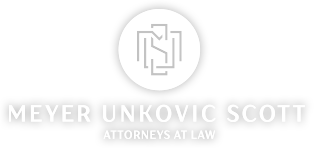
For a printable PDF of this article, click here.
Following a long pandemic-marked year, during which the only reasonable defenses against COVID-19 were masks and social distancing measures, promising vaccines are finally being released and administered. As these immunizations reach the wider public over the months to come, it could have a wide, hopefully positive effect on how individuals and businesses have operated these past months. It also raises an important question:
Can employers require their employees to take a COVID-19 vaccine?
The quick answer: It depends, and it is complicated.
If that sounds vague, the longer answer draws on a business’s circumstances, previous government guidance and established laws. For example, a health care-related business, such as a hospital or nursing home, may be able to require a COVID-19 vaccine because of the nature of the work performed in those locations and employees work with high-risk populations. In that scenario, a vaccine requirement likely would be considered “job-related” and necessary. On the other hand, it might be harder to justify a vaccine requirement at a workplace that has little need for face-to-face interaction, such as a software company where employees can work from home.
However, even if a workplace implements a vaccine requirement, there are a number of situations in which an employee may be exempt.
Title VII & the ADA
In 2009, in response to the H1N1 pandemic, the EEOC issued a guidance related to the workplace during the crisis. This was updated in 2020 as the COVID-19 pandemic reached the U.S. but remained largely unchanged. According to the guidance, employers must act within the bounds of the ADA and Title VII of the Civil Rights Act regarding mandatory vaccinations. In fact, the guidance recommends, “generally, ADA-covered employers should consider simply encouraging employees to get the influenza vaccine rather than requiring them to take it.” (Note: The guidance was updated before a COVID-19 vaccine was available.)
Two of the most prominent reasons an employee may seek an exemption are if the vaccination would go against “sincerely held religious beliefs,” which is supported by Title VII, or if a medical condition or disability prevents them from receiving the vaccine. Regarding the former situation, the employee must prove their beliefs are religious, as a non-religious belief is insufficient to receive an exemption.
In either case, the employer must try to come to a reasonable accommodation with the employee, such as allowing them to work from home. However, the employer may be able to deny the exemption if they can prove there is a “direct threat” to the business, other employees or others. An emergency room nurse, for example, may not be able to opt out of a vaccination requirement because of the danger it would present to vulnerable patients.
What to do?
For any employers considering a vaccine requirement for their employees, it is a complicated issue that comes saddled with a host of related concerns. If one is implemented, the policy must be clearly explained, describing why the decision is necessary for the business and who might be exempt, along with the process to get an exemption.
To assist with the decision and provide help in crafting a policy, as well as consultation on other employment and workplace issues, please contact Beth Slagle at [email protected], any member of the Employment Law Group, or any other Meyer, Unkovic & Scott lawyer with whom you have worked.
This material is for informational purposes only. It is not and should not be solely relied on as legal advice in dealing with any specific situation.

